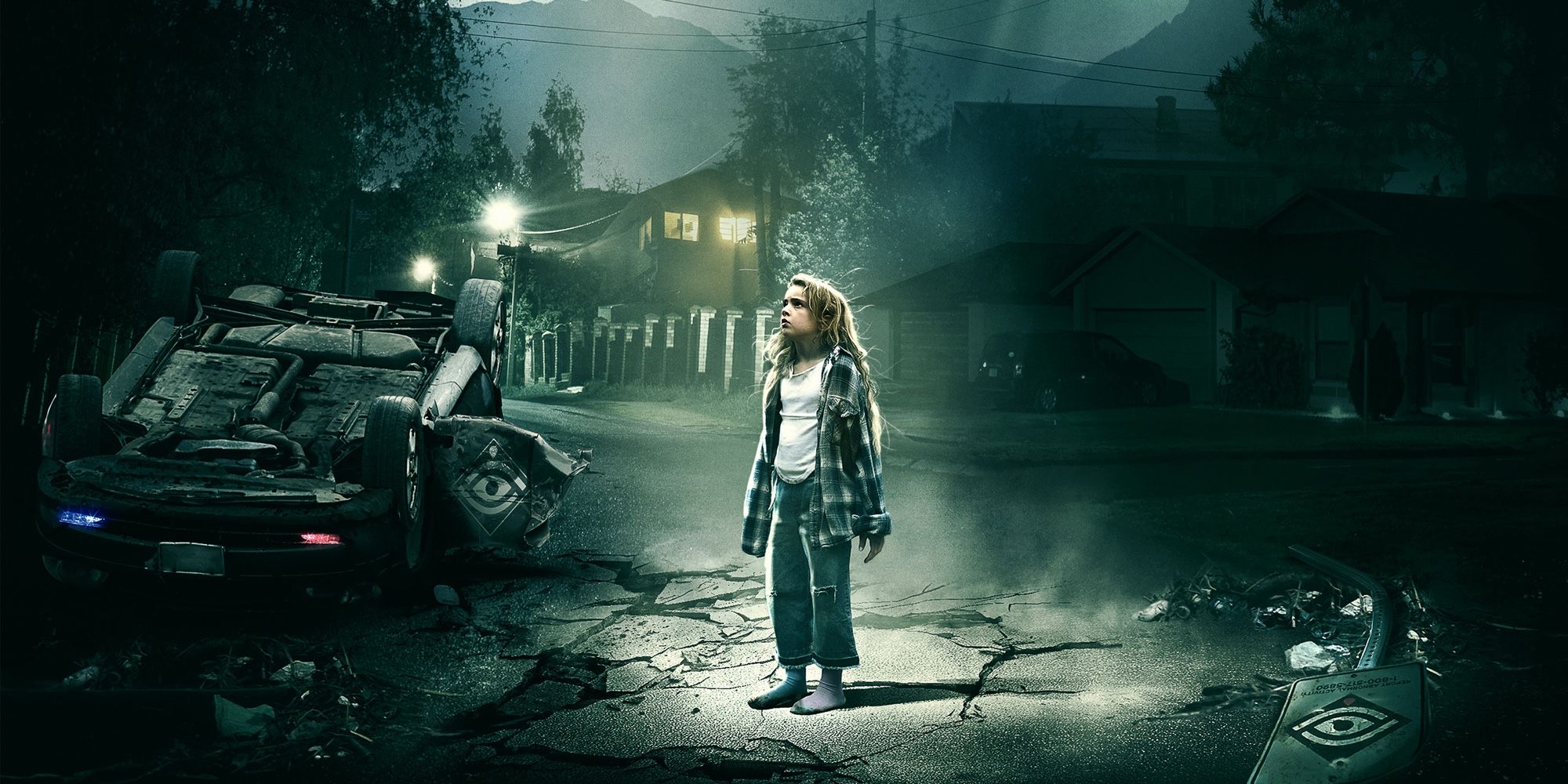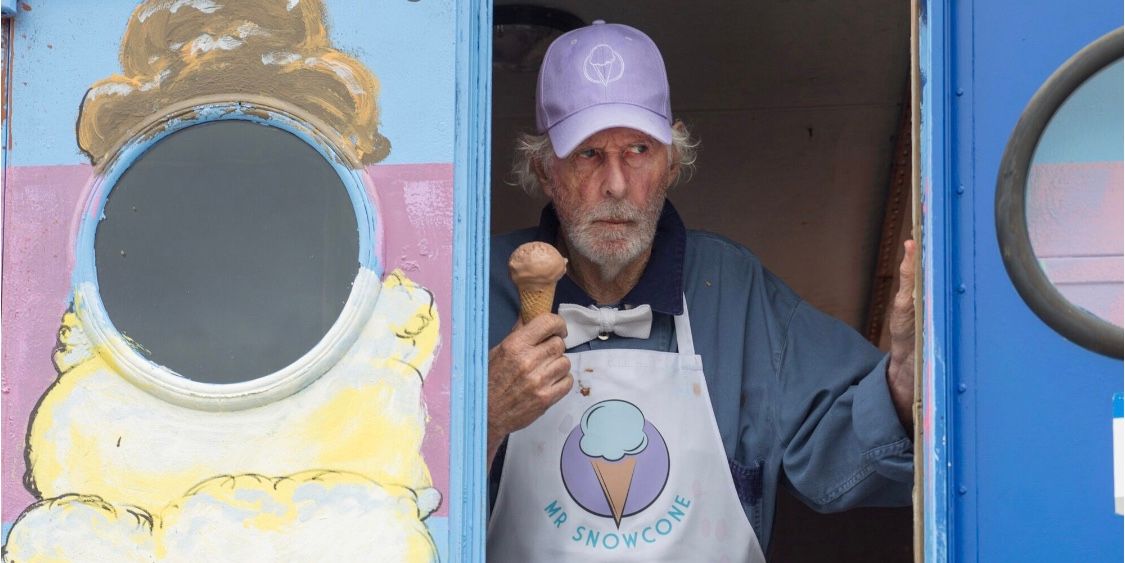Freaks, an indie thriller from newcomers Zach Lipovsky and Adam B. Stein, debuts in theaters just in time for Friday the 13th. The film tells the story of young Chloe (Lexy Kolker), who escapes her controlling father only to find herself part of a bizarre new world never knew existed. Screen Rant sat down with the directing duo, who also wrote the script together, to discuss the movie’s genre-bending ways and fable-like life lessons.
First of all, Freaks is definitely genre-bending. It might be easier to label this film either a thriller or a sci-fi., but to me, it's more of a mystery because you're figuring out things along with the characters. What do you describe this genre of film?
Adam Stein: We call it a sci-fi thriller, just because that's the easiest thing to say. But it is sort of a movie that changes genres and keeps you on the edge of your seat.
Zach Lipovsky: Some people call it the kitchen sink of genre, because it has a little bit of everything. A lot of that comes from the fact that the movie is from the perspective of this little girl. So, whatever she's feeling is the genre. At the beginning, she's really scared and it's really scary. Then she starts exploring the world and it's filled with wonder, and it becomes like a Spielberg movie. And then she starts feeling bloodlust, and Tarantino kind of creeps in there a little bit.
Adam Stein: And you’re yelling for revenge. I mean, our favorite, favorite movie going experiences as film fans are the ones where we're sitting in the audience, not knowing what's gonna happen next. And that's what we wanted to create.
And that's exactly what I loved about it. Because even with the antagonist of the film, which to me kept switching who I thought it could be – I’m not going to give that away. But Bruce Dern is a legend. What did he bring to Mr. Snowcone that wasn't necessarily envisioned while preparing for the film?
Zach Lipovsky: Well, that's a really great question. When we wrote this character of Mr. Snowcone, we wanted him to be this kind of mastermind type character. And when we started working with Bruce, he brought this whole other element to the character that was really cool.
Adam Stein: He brought a lot of humor to it, and a bit of a kind of discombobulated screw-up.
Zach Lipovsky: Yeah. Someone who isn't a mastermind, but –
Adam Stein: So, he thinks he’s a mastermind, but he always fails somehow. Which was cool.
I mean, Bruce, he's such a legend. He actually hadn't done a science fiction film in 45 years; not since 1972. And he kind of had this bias in his head that we don't think is fair, but he was like, “Science fiction is BS. I want to play real people.” Like, “I don't want to play any fantasy alien creatures.”
But he saw this character, Mr. Snowcone, who's trying to protect his family. And he's like, “That's something I can sink my teeth into. I want to save my daughter.” That's what he was all about. It made it personal for him, and it made him really want to play the part. Which is something we were very grateful for, because we had $1.50 to make this movie. We had, like, no money. So, we needed people like Bruce to believe in it and bring their A game.
Talk to me about some of the influences in this film. Because, personally: I saw a bit of Firestarter, some of the X-Men. What were some of the influences for you guys?
Zach Lipovsky: I mean, Adam and I are huge sci-fi fans. So, there's plenty of sci-fi movies that you could say influenced the movie. But when we were writing it, all the movies we watched and kind of drew inspiration from were not sci-fi movies. They were movies like Room, or Beasts of the Southern Wild or Florida Project – because we wanted to take that type of personal indie drama tone and apply it to a science fiction world. We've already seen and know every science fiction movie by heart, so we didn't necessarily need to go into all of those in detail. Because we knew all of that.
We wanted to find a way of taking this thing that's just about a family; it's just about people and their own personal stakes. It's not about saving the world; it’s just about saving themselves, and the complications of family and arguments at the dinner table – but put it into a much more almost Marvel or sci-fi type of world.
Adam Stein: We wanted to take one of those sci-fi movies and make them more real and more personal.
Another brilliant performance was Lexy. Can you talk to me about what she brought to the character that may not be on the page?
Adam Stein: Absolutely. You know, when we first auditioned Lexy, we were trying to find kids who could bring their real emotions to it. Kids had big feelings. I know because I'm a dad, and boy, they get heated sometimes. They get, you know – And that was in the script, but we also wanted that to feel very real and natural.
Lexy, from the first audition, she was screaming, and her eyes are watering. She's so intense, but she's also got this innocence. We did a lot of improv with her on set to kind of start with the script, but then take it into her own words and really make it feel very real.
Now, talk to me about the life lessons that can be learned from playing poker in your film and in the real world.
Zach Lipovsky: Well, there is some poker in the movie. We used to play poker ourselves. But really, in the movie –
Adam Stein: He’s teaching her to lie. He's teaching her how to a poker face. And, actually, we shot that scene early on. It was like the first or second day, and we taught Lexy what a poker face was.
Zach Lipovsky: She’d never heard that word before. “What’s a poker face?”
Adam Stein: She had the most perfect poker face. And then later, when we were filming and we needed her to look angry or serious, we would say, “Lexy, poker face.” And she would immediately go [blank].
Zach Lipovsky: You could try it with her.
Adam Stein: Ask her to do it. Ask her to do a poker face.
Last question: I'm hoping this movie gets a ton of word of mouth, because I think that great word of mouth generates a lot of people coming into the theaters. But what do you want audiences to take away from this film? Because sci-fi is usually a cautionary tale about things that could happen.
Zach Lipovsky: Yeah, I think it we want to a few things. One is, we need that word of mouth, because we are tiny filmmakers with our first film that we just have created out of favors.
Adam Stein: Comes out Friday the 13th!
Zach Lipovsky: It's up to the world to basically, if you see the movie and you like it, tell everyone you know. Because that's all we’ve got, is people becoming fans. But in the end, the movie is a really interesting perspective on what it's like to be the other, and what it's like to kind of try and be yourself. And that question of: should you be yourself when there's a huge risk to being yourself? Or is it better to kind of hide who you are because it's safer? And that question is something that I think anyone can relate to, and also is very relevant to the times today.
Well, you leave it open-ended, so I'm hoping for a sequel.


